Cartographies of Counter-Speculation
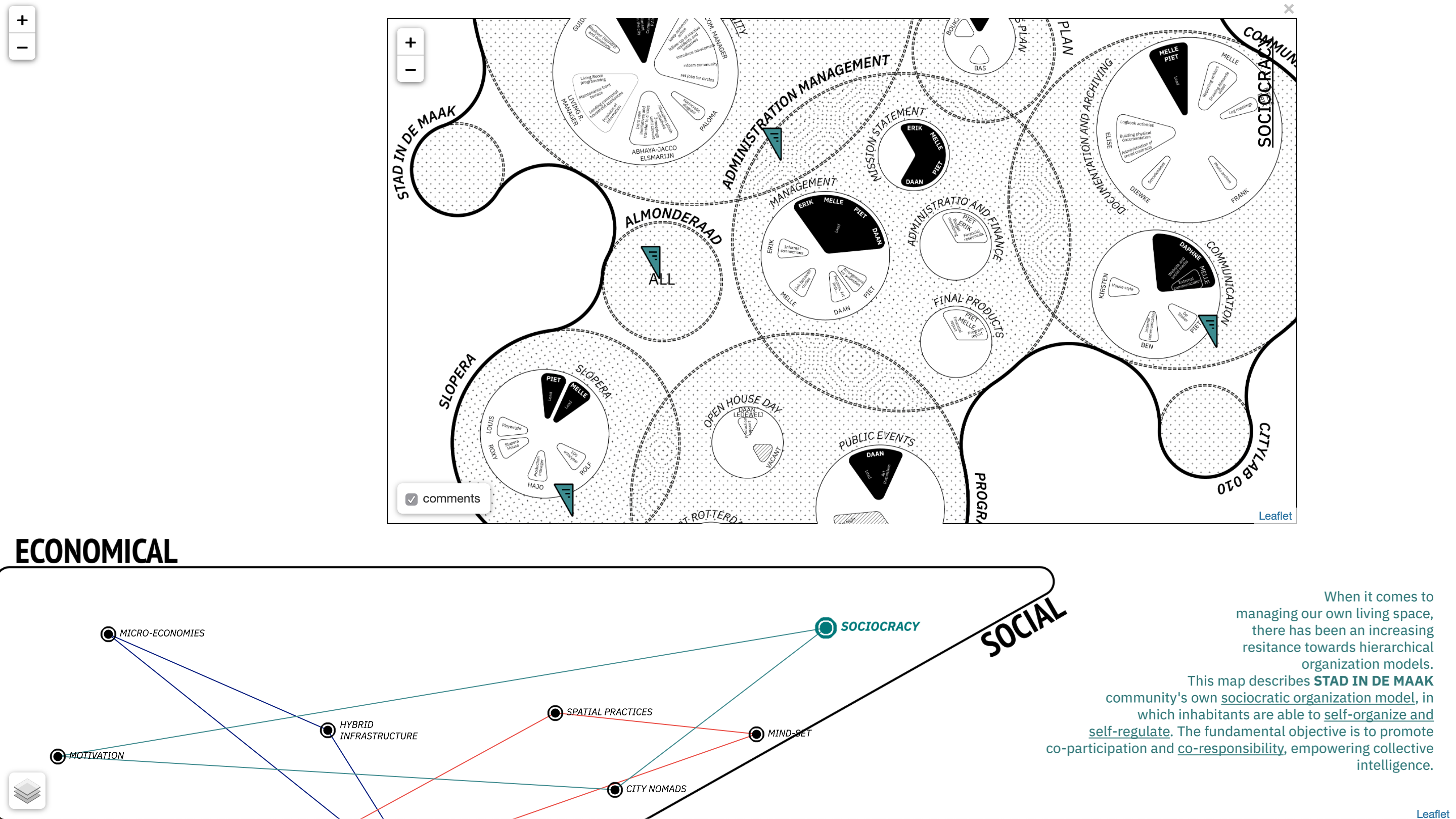

Cartographies of Counter-Speculation
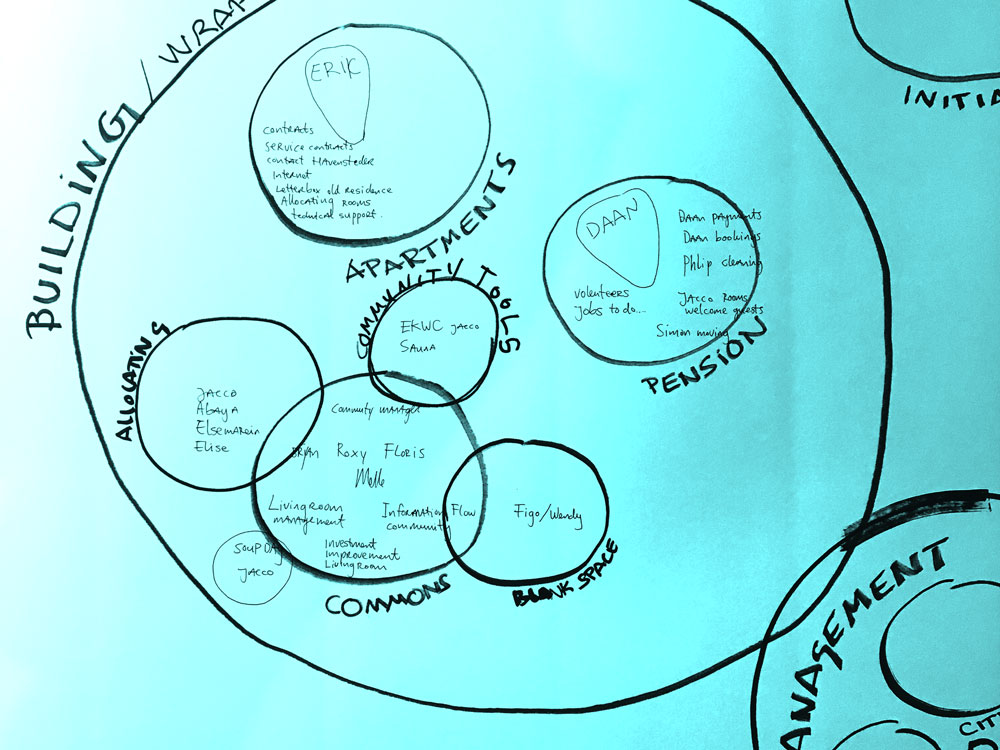
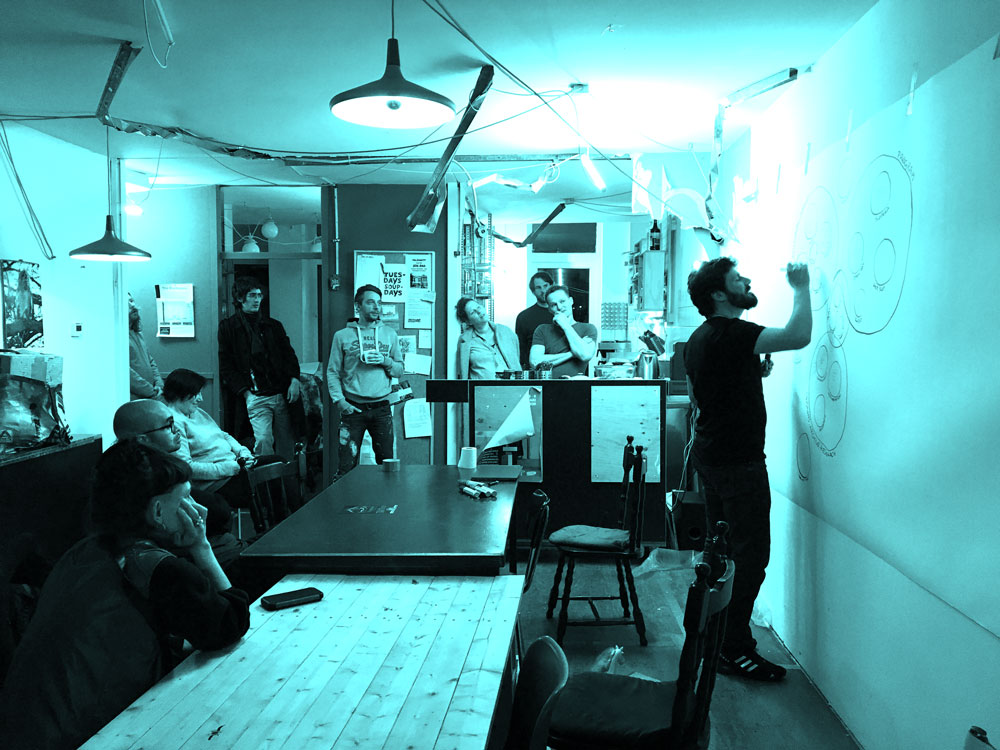
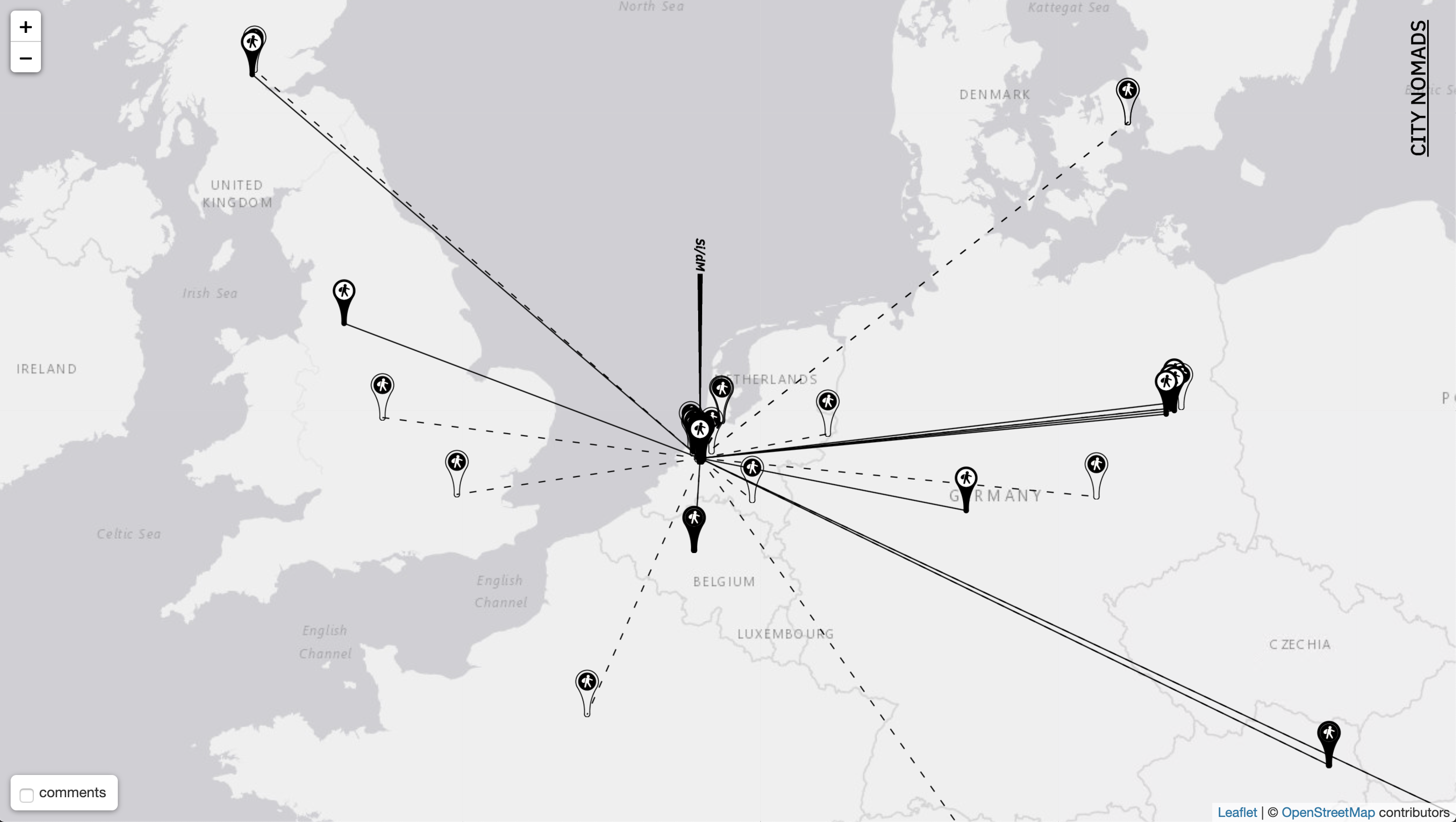
Cartographies of Counter-Speculation is a collection of maps and diagrams that envisions those alternative housing models that are not normally represented on maps. They are based on the practice of three communities in Rotterdam: Stad in de Maak, Poortgebouw, and Stichting NAC, which in different ways have been revealed against traditional property speculation. Maps are either tools to work with communities and also extremely powerful elements of communication; they are not only elements of contemplation but also open spaces to start discussions or conversations.
Maps and diagrams have traditionally been elements of power and domination. Still, since maps became popular and accessible to the general public, we have the chance to reverse the process, creating counter-maps which can fill gaps in map representation and become social mechanisms. This project aims to put together three of my main areas of interest: Maps, architecture, and social impact, understanding the result as an innovative digital social tool.
Cartographies of Counter-Speculation is a public website where you can explore the collection of maps that have been produced, describing these alternative housing models and their social, political and economic aspects. From microeconomic models to sociocratic organisation, this collection concentrates mail strategies that these communities followed to survive against housing speculation phenomena in the city of Rotterdam.
The project started connecting with communities through mapathon sessions: map-making workshops to collect information and involve people in the community to participate in the process of map-making, giving them space to share ideas, doubts or concerns. During this time, the coronavirus exploded in the Netherlands. Physical meetings were not possible anymore and social interaction in real life was in crisis. I have always defended that maps are powerful elements among many other things, because they are flexible and adaptable to almost every communication medium. Therefore, I had to take advantage of this feature and I started a map digitalisation period. Maps were transformed into virtual elements and the connection with the communities would be maintained through a new interactive layer implemented in the digital version, where users could leave or reply comments opening space for new conversation or discussions.
Cartographies of Counter-Speculation is understood as a reproductive tool that understands maps, diagrams and cartographies as rooms for leaving traces exploring new paths of participatory mapping. Cartographies are frames and background for a lot of situations that can happen over them. Maps are scenarios to empower realities, to visualise hidden information and to discuss that freely.
Maps are undoubtedly an essential part of our life: we have simply accepted them as a natural way of communication. I’ve heard so many times in this year that the world is already mapped – and it’s true, but the question is: Are these maps the ones that we want? Counter-maps are different from maps: they are not tracking scientific elements, but they are social tools to help societies to advance. If a counter-map triggers social progress, it is worthwhile to make one more map. So this project is my small contribution to our mapped world.
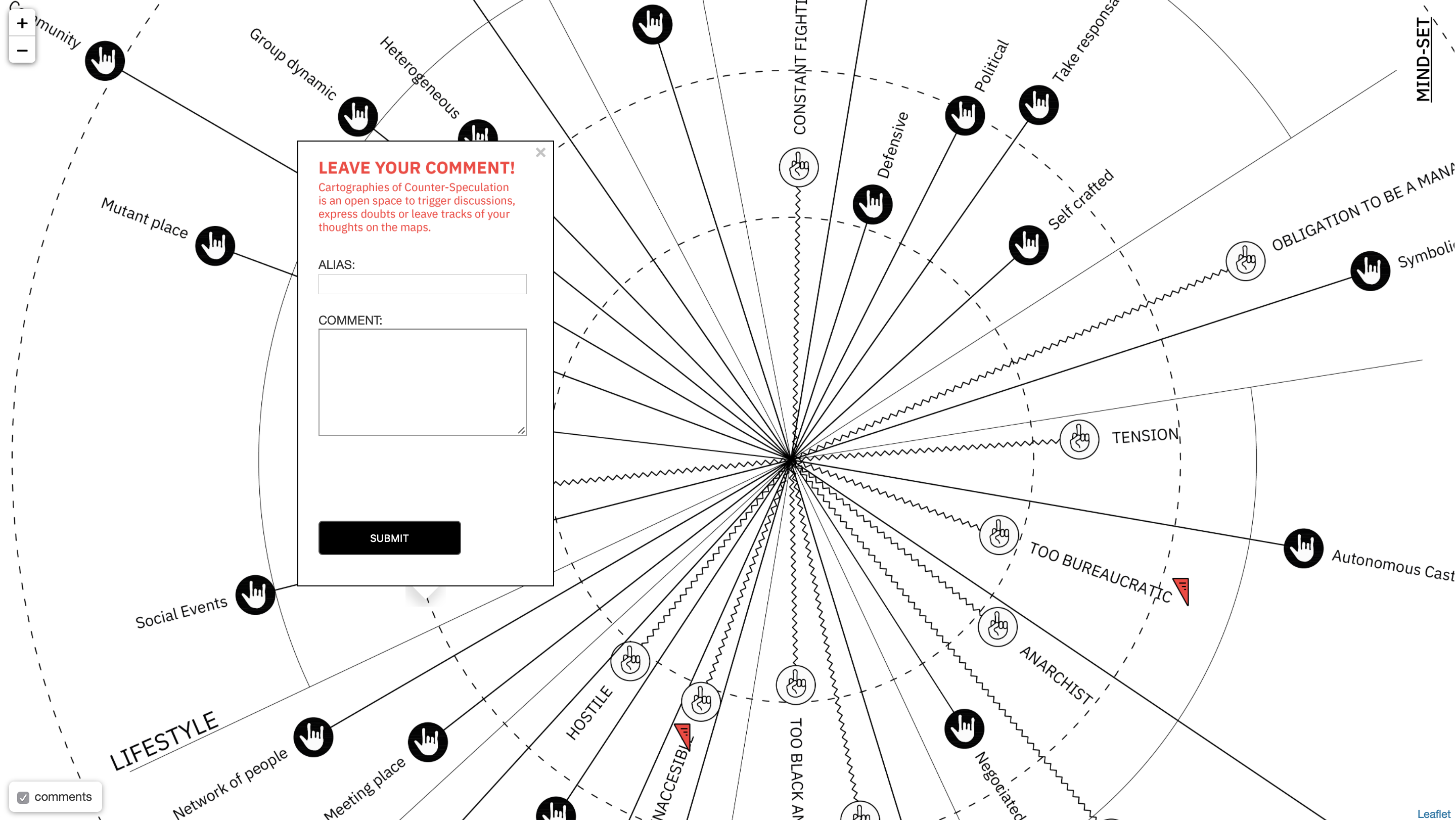




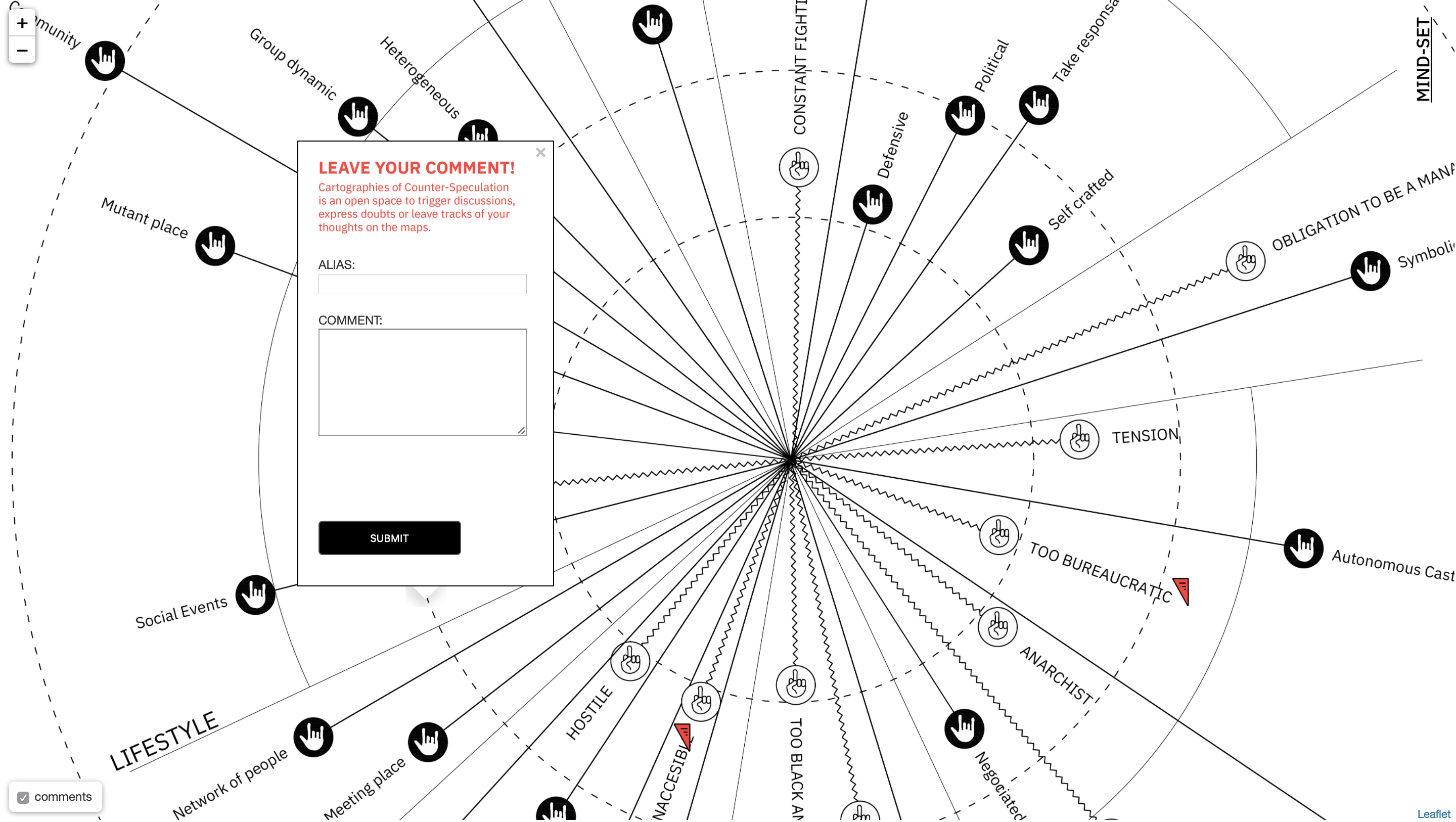
[Paloma García García, Cartographies of Counter-Speculation, 2020. Rotterdam]. Copyleft: This is a free work, you can copy, distribute, and modify it under the terms of the Free Art License
